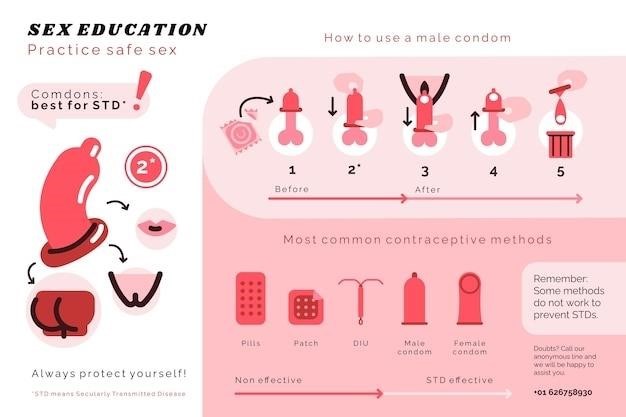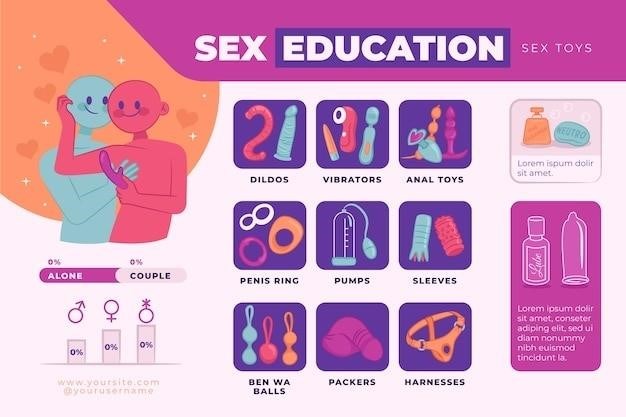
Understanding Healthy Sexual Relationships
A healthy sexual relationship thrives on mutual respect, open communication, and shared emotional intimacy. Physical satisfaction is crucial, but equally important is a feeling of safety, trust, and emotional fulfillment for both partners. This involves understanding and respecting each other’s boundaries and desires, ensuring a consensual and pleasurable experience.
Defining a Healthy Sexual Relationship
Defining a healthy sexual relationship goes beyond simply having sex; it encompasses a multifaceted connection built on mutual respect, trust, and open communication. It’s a partnership where both individuals feel comfortable expressing their desires, needs, and boundaries without fear of judgment or coercion. Physical intimacy is an essential component, but it’s interwoven with emotional intimacy, creating a bond of closeness and understanding. A healthy relationship prioritizes consent, ensuring that all sexual activities are mutually desired and enjoyed. This means actively listening to your partner, respecting their limits, and being responsive to their needs. Regular communication, both verbal and non-verbal, is crucial for navigating desires, addressing concerns, and maintaining a fulfilling sexual connection. It’s a journey of exploration and growth, where both partners feel empowered to express themselves and experience pleasure together.
Communication and Emotional Intimacy
Open and honest communication forms the bedrock of a thriving sexual relationship. It’s not just about discussing sexual preferences; it’s about creating a safe space where both partners feel comfortable expressing their feelings, needs, and concerns about intimacy. This includes sharing vulnerabilities, anxieties, and desires, fostering a deeper understanding and connection. Emotional intimacy involves creating a bond of trust and mutual respect, where both partners feel seen, heard, and valued. This emotional connection enhances physical intimacy, making sexual experiences more meaningful and fulfilling. Regular check-ins, active listening, and honest feedback are essential for navigating any challenges and ensuring that both partners feel satisfied and understood. Creating a space for vulnerability allows for growth and strengthens the emotional bond, thereby enriching the overall sexual experience. Without open communication and emotional intimacy, physical intimacy can become disconnected and unsatisfying.
Physical Satisfaction and Mutual Respect
Physical satisfaction is a vital component of a healthy sexual relationship, but it’s inextricably linked to mutual respect. This means prioritizing pleasure for both partners, ensuring that each individual feels comfortable and empowered to express their desires and boundaries. Open communication about preferences, fantasies, and physical comfort levels is crucial. Exploring different approaches, experimenting with new techniques, and adapting to changing needs are all part of maintaining physical satisfaction. However, it’s equally important to prioritize consent and respect. Coercion, pressure, or disregard for boundaries are completely unacceptable; A healthy sexual relationship involves a balance of exploration and respect, ensuring that the physical aspect is a source of mutual pleasure and fulfillment, not a source of discomfort or resentment. Mutual respect goes beyond simply avoiding harmful behaviors; it involves actively fostering an environment of trust, emotional safety, and shared agency in sexual experiences.

Enhancing Sexual Health and Well-being
Prioritizing open communication, addressing concerns promptly, and maintaining emotional intimacy are key to a thriving sex life. Regular check-ups, safe sex practices, and addressing any sexual difficulties contribute to overall well-being.
Addressing Sexual Difficulties and Concerns
Many adults experience sexual difficulties at some point; it’s not uncommon. Open communication with your partner is crucial. Don’t hesitate to discuss any concerns, whether it’s decreased libido, erectile dysfunction, painful intercourse, or other issues. Remember, seeking professional help is a sign of strength, not weakness. Sex therapists and counselors can provide guidance and support. They can help you explore the root causes of your difficulties and develop strategies to overcome them. For example, relationship issues, stress, or underlying medical conditions can significantly impact sexual health. Addressing these underlying factors is often essential for resolving sexual problems. Remember, a fulfilling sexual relationship is built on mutual understanding, patience, and a willingness to address challenges together. There are various resources available, including books, websites, and support groups, that can provide additional information and support;
Maintaining Intimacy in Long-Term Relationships
Maintaining intimacy in long-term relationships requires consistent effort and conscious choices. The initial passion may fade, but deep intimacy can grow stronger over time. Prioritize quality time together, engaging in activities you both enjoy, fostering emotional connection beyond the bedroom. Regular date nights, shared hobbies, and open communication help keep the spark alive. Don’t underestimate the importance of non-sexual intimacy—holding hands, cuddling, and expressing affection regularly builds emotional closeness. Explore new ways to connect physically and emotionally, experimenting with different forms of intimacy to keep things exciting. Addressing stress and conflicts constructively is crucial, ensuring a supportive and safe environment for intimacy to flourish. Remember, maintaining intimacy is an ongoing process, requiring mutual commitment, understanding, and a willingness to adapt and grow together. Regularly check in with each other’s needs and desires, ensuring both partners feel heard and valued.
Exploring Different Aspects of Sexuality
Sexuality is diverse and personal; understanding individual preferences, desires, and boundaries is key to a fulfilling sex life. Open communication and mutual respect are essential for exploring and enjoying various aspects of sexuality together.
Frequency of Sexual Activity⁚ What’s Normal?
The notion of a “normal” frequency for sexual activity is a misconception. What constitutes a healthy sexual relationship is not defined by the number of times couples engage in intercourse, but rather by the quality of their connection and mutual satisfaction. Experts consistently emphasize that the frequency that works best varies greatly depending on individual factors, such as age, health, relationship dynamics, stress levels, and personal preferences. Some couples find intimacy multiple times a week fulfilling, while others prioritize quality time over quantity, feeling satisfied with a less frequent approach. Open communication is crucial; partners should openly and honestly discuss their individual desires and needs, ensuring both feel heard, respected, and fulfilled. Judging the health of a relationship based solely on frequency is inaccurate and can create unnecessary pressure and anxiety. The focus should always be on mutual pleasure, emotional connection, and a satisfying intimacy that works for both individuals involved.
The Role of Communication and Boundaries
Open and honest communication forms the bedrock of any healthy sexual relationship. This goes beyond simply discussing desires; it involves expressing needs, concerns, and preferences without fear of judgment or rejection. Effective communication ensures both partners understand and respect each other’s boundaries, both physical and emotional. Establishing clear boundaries is crucial for fostering mutual respect and consent. This involves articulating what feels comfortable and what doesn’t, ensuring that every sexual encounter is mutually agreeable and enjoyable. Regular check-ins, active listening, and a willingness to compromise are essential for navigating differing desires and maintaining a fulfilling sexual dynamic. Ignoring communication or dismissing boundaries can lead to resentment, dissatisfaction, and ultimately, damage the relationship. Prioritizing open dialogue and mutual respect guarantees a healthy and pleasurable sexual experience for both partners.